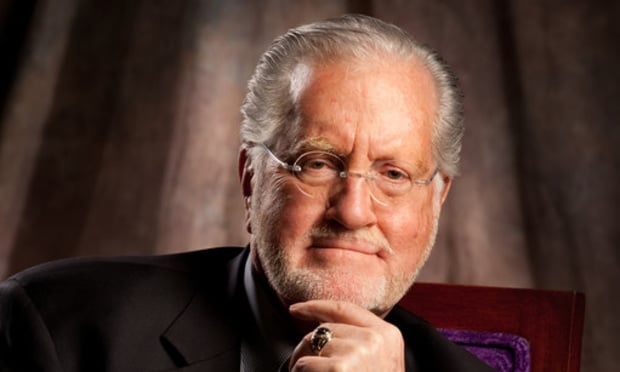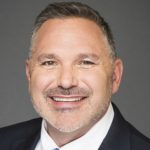Judge Names 39-Member Plaintiffs Team to Lead iPhone Throttling MDL
Two San Francisco Bay Area attorneys are leading the plaintiffs team, and a Florida attorney is coordinating litigation for iPhone users.
May 16, 2018 at 01:30 PM
3 minute read

A federal judge has appointed two San Francisco Bay Area attorneys to lead the plaintiffs team and reached out to a Florida attorney to coordinate litigation for consumers claiming Apple Inc. throttled their iPhone speeds.
Joseph Cotchett of Cotchett, Pitre & McCarthy in Burlingame and Laurence King of Kaplan Fox & Kilsheimer in San Francisco were named co-lead plaintiffs counsel in the order issued Tuesday by U.S. District Judge Edward Davila in San Jose, California.

Mark Dearman of Robbins Geller Rudman & Dowd is heading the 23-member plaintiffs executive committee and takes responsibility for delegating assignments, communicating with the court, distributing orders and maintaining a master service list. A 14-member steering committee also was named.
Davila approved a broad proposal for a 39-member coalition approach to the plaintiffs case, which was opposed by Apple. The judge rejected competing leadership proposals with a lean approach to team members from Steve Berman of Seattle's Hagens Berman Sobol Shapiro and William Audet of San Francisco's Audet & Partners.
Coalition attorneys dominated the head count at a May 10 hearing on the competing motions to oversee about 80 class actions claiming Apple intentionally and surreptitiously slowed down older iPhones to nudge consumers to buy newer devices.
“At first blush,” the coalition approach “may seem larger than necessary,” the judge wrote. But he said the large number “is warranted in light of the projected size of the case, including the potential number of class members.”
Davila didn't address the actual number, but Cotchett Pitre partner Mark Molumphy estimated 400 million to 500 million iPhones were potentially affected.
The judge noted the co-leaders “have demonstrated an ability to cooperate with a range of different interests that span across law firms, practice groups, geography, and gender and introduce smaller firms into the litigation experience.”
Notably, four of nine committees are led by women, and eight women are on the 23-member executive committee directing the plaintiffs case. A Temple University study released last year cited a lack of women in multidistrict litigation leadership.
King said by email that he was pleased the judge “adopted our inclusive approach to leadership in this important litigation.”
Molumphy said, “We have some of the top women attorneys in the country leading this case with us.”
Asked if it would be a time-zone challenge for an East Coast lawyer to administer a plaintiffs case in California, Dearman said his firm would be able to handle it.
“We're 200 lawyers, all we do is class action and mass action, and about 120 of our lawyers are located in San Francisco and San Diego. I'm in California as it is biweekly,” he said.
Apple is accused of slowing the performance of iPhones with older, chemically aged batteries. The company in January announced a software battery-management upgrade allowing users to disable processor throttling.
This content has been archived. It is available through our partners, LexisNexis® and Bloomberg Law.
To view this content, please continue to their sites.
Not a Lexis Subscriber?
Subscribe Now
Not a Bloomberg Law Subscriber?
Subscribe Now
NOT FOR REPRINT
© 2025 ALM Global, LLC, All Rights Reserved. Request academic re-use from www.copyright.com. All other uses, submit a request to [email protected]. For more information visit Asset & Logo Licensing.
You Might Like
View All
Holland & Knight Hires Former Davis Wright Tremaine Managing Partner in Seattle
3 minute read
RFK Jr. Will Keep Affiliations With Morgan & Morgan, Other Law Firms If Confirmed to DHHS
3 minute read
Plaintiffs Attorneys Awarded $113K on $1 Judgment in Noise Ordinance Dispute
4 minute read
Local Boutique Expands Significantly, Hiring Litigator Who Won $63M Verdict Against City of Miami Commissioner
3 minute readTrending Stories
Who Got The Work
J. Brugh Lower of Gibbons has entered an appearance for industrial equipment supplier Devco Corporation in a pending trademark infringement lawsuit. The suit, accusing the defendant of selling knock-off Graco products, was filed Dec. 18 in New Jersey District Court by Rivkin Radler on behalf of Graco Inc. and Graco Minnesota. The case, assigned to U.S. District Judge Zahid N. Quraishi, is 3:24-cv-11294, Graco Inc. et al v. Devco Corporation.
Who Got The Work
Rebecca Maller-Stein and Kent A. Yalowitz of Arnold & Porter Kaye Scholer have entered their appearances for Hanaco Venture Capital and its executives, Lior Prosor and David Frankel, in a pending securities lawsuit. The action, filed on Dec. 24 in New York Southern District Court by Zell, Aron & Co. on behalf of Goldeneye Advisors, accuses the defendants of negligently and fraudulently managing the plaintiff's $1 million investment. The case, assigned to U.S. District Judge Vernon S. Broderick, is 1:24-cv-09918, Goldeneye Advisors, LLC v. Hanaco Venture Capital, Ltd. et al.
Who Got The Work
Attorneys from A&O Shearman has stepped in as defense counsel for Toronto-Dominion Bank and other defendants in a pending securities class action. The suit, filed Dec. 11 in New York Southern District Court by Bleichmar Fonti & Auld, accuses the defendants of concealing the bank's 'pervasive' deficiencies in regards to its compliance with the Bank Secrecy Act and the quality of its anti-money laundering controls. The case, assigned to U.S. District Judge Arun Subramanian, is 1:24-cv-09445, Gonzalez v. The Toronto-Dominion Bank et al.
Who Got The Work
Crown Castle International, a Pennsylvania company providing shared communications infrastructure, has turned to Luke D. Wolf of Gordon Rees Scully Mansukhani to fend off a pending breach-of-contract lawsuit. The court action, filed Nov. 25 in Michigan Eastern District Court by Hooper Hathaway PC on behalf of The Town Residences LLC, accuses Crown Castle of failing to transfer approximately $30,000 in utility payments from T-Mobile in breach of a roof-top lease and assignment agreement. The case, assigned to U.S. District Judge Susan K. Declercq, is 2:24-cv-13131, The Town Residences LLC v. T-Mobile US, Inc. et al.
Who Got The Work
Wilfred P. Coronato and Daniel M. Schwartz of McCarter & English have stepped in as defense counsel to Electrolux Home Products Inc. in a pending product liability lawsuit. The court action, filed Nov. 26 in New York Eastern District Court by Poulos Lopiccolo PC and Nagel Rice LLP on behalf of David Stern, alleges that the defendant's refrigerators’ drawers and shelving repeatedly break and fall apart within months after purchase. The case, assigned to U.S. District Judge Joan M. Azrack, is 2:24-cv-08204, Stern v. Electrolux Home Products, Inc.
Featured Firms
Law Offices of Gary Martin Hays & Associates, P.C.
(470) 294-1674
Law Offices of Mark E. Salomone
(857) 444-6468
Smith & Hassler
(713) 739-1250






